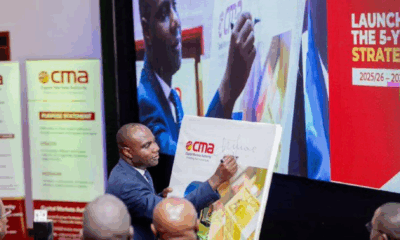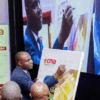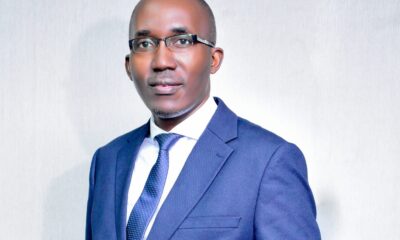Ramathan Ggoobi
Political uncertainty is hurting the economy
The “NRM battle” has put investors, businessmen, consumers, and savers at tenterhooks!
What is going on in State House has raised analytics’ political uncertainty index. The “NRM battle” has put investors, businessmen, consumers, and savers at tenterhooks!
Since 2008, the Ugandan economy has frustratingly been performing below targets and potential on almost all fronts. While there are many reasons for this, political brinkmanship, following the tinkering with the 1995 Constitution in 2005 and the resultant removal of presidential term limits, has been a significant contributing factor. To analyse how political uncertainty, since 2005/06, has impacted our economy, let us first outline the macroeconomic targets for Uganda’s economy.
Firstly, is to maintain real GDP growth of at least 7% per year. Secondly, we want to maintain low and stable inflation, averaging at 5% per year. Thirdly, we also want to maintain a prudent level of foreign reserves of at least 4 months of imports cover i.e. Bank of Uganda must keep some dollars, as international reserves, that are able to finance at least 4 months of Uganda’s import bill. On average we import goods and services worth about $800 million per month. This means that BOU must keep at least $3.2 billion as international reserves, sufficient to cover at least 4 months of future imports of goods and services.
Fourthly, we also have a target of ensuring that the real exchange rate is stable and competitive. This in simple terms requires that the prevailing exchange rates (at which we purchase major foreign currencies such as dollars, pound sterling, Kenyan shillings etc) should be able to encourage export of our commodities (which are predominantly primary products) without discouraging imports (which are mainly manufactured goods and services). So the exchange rates should be high enough to make our highly substitutable goods competitive, yet low enough to make imports affordable.
Lastly, we also aspire to position Uganda in the EAC common market to ensure that our products and factors of production are competitive regionally. Although Uganda has been instrumental in the revival of East African Community, Ugandans have not taken full advantage of this regional market due to low capacity to compete with others, particularly Kenyans. So government of Uganda wants to help Ugandans build this capacity.
Growth might not recover!
Now, let us see how the economy has lately been performing in the pursuit of the above five major objectives. As far as growth of the economy is concerned, the last time Uganda’s economy registered a growth rate of 7% or above was in fiscal year 2008/09. Since then, the curve has been going down. In 2009/10, the economy grew by 5.9%, before declining further to 3.4% in 2011/12, the lowest annual growth rate of GDP since the implementation of the recovery program in 1987.
Although there have been efforts to recover growth back to the targeted 7%, and indeed some recovery has been achieved (economy is growing by 4.7%), projections indicate that growth might not recover back to its potential in the foreseeable future. Why this pessimistic projection?
Harsh political vitriol currently going on in the NRM party, and the possibility of internal conflict as a result of failure to resolve these political battles, as well as the politically generated violence and uncertainty since 2006, have weighed heavily on the collective psyche across the country and beyond. This has significant economic consequences.
Mr. President, while many factors are at work to slow down economic growth and job creation, your heated political battles within the NRM are a significant contributor to the current economic slowdown. Businesses will become more reluctant to invest and hire, and entrepreneurs are less likely to attempt startups. Financial institutions will become more circumspect about lending and households more cautious about spending.
The “NRM battle” — to decide whether you should continue and leave power after 2016 — should have little adverse effect on businesspeople, consumers or investors, provided it is resolved in time. But given what we have been hearing and reading in media lately, policymakers should not take solace in this. It appears things might never be same again in the ruling party, and this is the last thing investors and consumers would want to hear.
Political risk is uninsurable!
Mr. President, political uncertainty is very dangerous to the economic prospects for main reason: it is not insurable. There is no single insurance company that sells a policy against political risk. So investors and businessmen will become unwilling to continue starting up new businesses or inject more cash in the existing investments if they are not sure what will happen in 2016 and thereafter. So it is most likely that the economy will fail to hit its growth targets.
Secondly, as the economy slows down and its productive capacity is undermined, inflation is likely to rise once again in the near future. Although, one of the NRM government’s track records has been maintaining low inflation, since 2008, however, inflation has been a major challenge to policymakers and Uganda’s economic agents (investors, businessmen, consumers, and savers). It increased into double digits, peaking at 30.5% in the second quarter of 2011/12. Now, as we move towards 2016, there is likelihood that inflation, which is currently under check (averaging 2% per annum), will rise above the targeted 5%. This will affect investor confidence further, raise further the already high cost of living, and negatively impact the savings and consumption levels.
These projections become even more likely since your policymakers at Ministry of Finance decided to add significant fiscal austerity to the already apparent economic slowdown. Tax increases (including taxes on agricultural inputs and basic essentials such as salt, paraffin, etc) that were approved by Parliament recently, will most likely put a substantial drag on economic growth.
Unemployment, which is already unacceptably high, is likely to rise further in the coming couple of years. Businesses are not likely to lay off workers, but they will not hire many, either. Mr. President, what goes on in State House is often a source of uncertainty, and I want to tell you that my analytics index shows that political uncertainty is currently very high.
Thirdly, this relentless battle between you, Mr. President, and your former best friend and close ally, Hon. Amama Mbabazi, is isolating us from our regional friends. We were progressing well in the EAC integration process, mainly because your colleagues, particularly in Kenya and Rwanda had confidence that you were a strong leader domestically. Now they know you are vulnerable.
Why celebrate Mbabazi sacking?
The Mbabazi saga has exposed you very badly. You’ve never panicked before the way you are doing now. Whoever advised you to mastermind the “Kyankwanzi Resolution”, to ring-fence yourself as a sole candidate for 2016, is the worst adviser you’ve had in your 28 years of presidency. These advisers went ahead and forced you to do so many things that are uncharacteristic of the Museveni we knew. How can you agree to arrange a party to celebrate the sacking of Mbabazi? Why? How can you allow to erect billboards campaigning for support for your sole candidacy? Why do you allow a few people, chasing some small jobs here and there, to reduce you so low yet we’ve known you as a strong, proud leader who is always in charge of his constituency? You no longer look and sound like a leader in charge.
Mr. President, these things started sometime last year when you made panicky changes in the military command and cabinet following the unsubstantiated allegations penned by Gen. David Sejusa before fleeing the country into self-exile in the UK. Since that time, I suspect some people took advantage of your vulnerabilities to serve their selfish interests. They ill-advised you, made you make a few mistakes. They are still pursuing you to help them serve their interests — to get jobs, money, and some to position themselves for the transitional period soon coming.
Fortunately, it is not yet too late. You can save the best for the last by retracing your best qualities that Ugandans used to associate with you. Ugandans used to believe that you are an extraordinary human being, mainly because you used to keep your cards near your chest. The moment you displayed all your cards, you exposed them for everyone to see that actually you ran out of aces! Fine you’ve lost round one, but it is just a round in a game of many rounds. Can you please pick your cards up and once again hold them near your chest? Mr. President, only the element of surprise will save you and Uganda from losing this game. As we approach 2016, keep your “bad” cards away; everyone will think you hold aces.
Comments


























